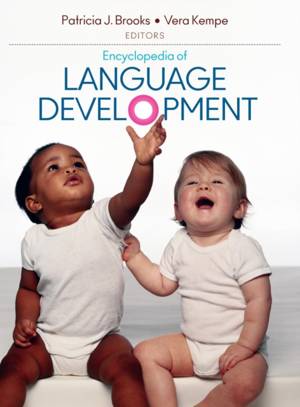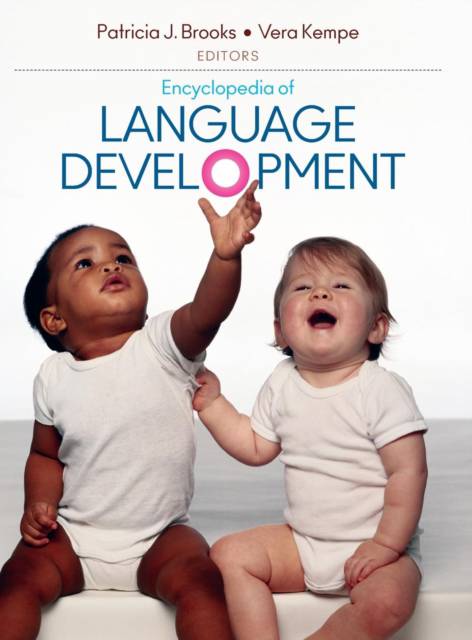
- Afhalen na 1 uur in een winkel met voorraad
- Gratis thuislevering in België vanaf € 30
- Ruim aanbod met 7 miljoen producten
- Afhalen na 1 uur in een winkel met voorraad
- Gratis thuislevering in België vanaf € 30
- Ruim aanbod met 7 miljoen producten
Zoeken
€ 415,95
+ 831 punten
Omschrijving
The progression from newborn to sophisticated language user in just a few short years is often described as wonderful and miraculous. What are the biological, cognitive, and social underpinnings of this miracle? What major language development milestones occur in infancy? What methodologies do researchers employ in studying this progression? Why do some become adept at multiple languages while others face a lifelong struggle with just one? What accounts for declines in language proficiency, and how might such declines be moderated? Despite an abundance of textbooks, specialized monographs, and a couple of academic handbooks, there has been no encyclopedic reference work in this area--until now. The Encyclopedia of Language Development covers the breadth of theory and research on language development from birth through adulthood, as well as their practical application.
Features:
Features:
- This affordable A-to-Z reference includes 200 articles that address such topic areas as theories and research tradition; biological perspectives; cognitive perspectives; family, peer, and social influences; bilingualism; special populations and disorders; and more. All articles (signed and authored by key figures in the field) conclude with cross reference links and suggestions for further reading. Appendices include a Resource Guide with annotated lists of classic books and articles, journals, associations, and web sites; a Glossary of specialized terms; and a Chronology offering an overview and history of the field.
- A thematic Reader's Guide groups related articles by broad topic areas as one handy search feature on the e-Reference platform, which includes a comprehensive index of search terms.
Available in both print and electronic formats, Encyclopedia of Language Development is a must-have reference for researchers and is ideal for library reference or circulating collections.
Specificaties
Betrokkenen
- Auteur(s):
- Uitgeverij:
Inhoud
- Aantal bladzijden:
- 784
- Taal:
- Engels
Eigenschappen
- Productcode (EAN):
- 9781452258768
- Verschijningsdatum:
- 23/04/2014
- Uitvoering:
- Hardcover
- Formaat:
- Genaaid
- Afmetingen:
- 227 mm x 284 mm
- Gewicht:
- 2331 g

Alleen bij Standaard Boekhandel
+ 831 punten op je klantenkaart van Standaard Boekhandel
Beoordelingen
We publiceren alleen reviews die voldoen aan de voorwaarden voor reviews. Bekijk onze voorwaarden voor reviews.











